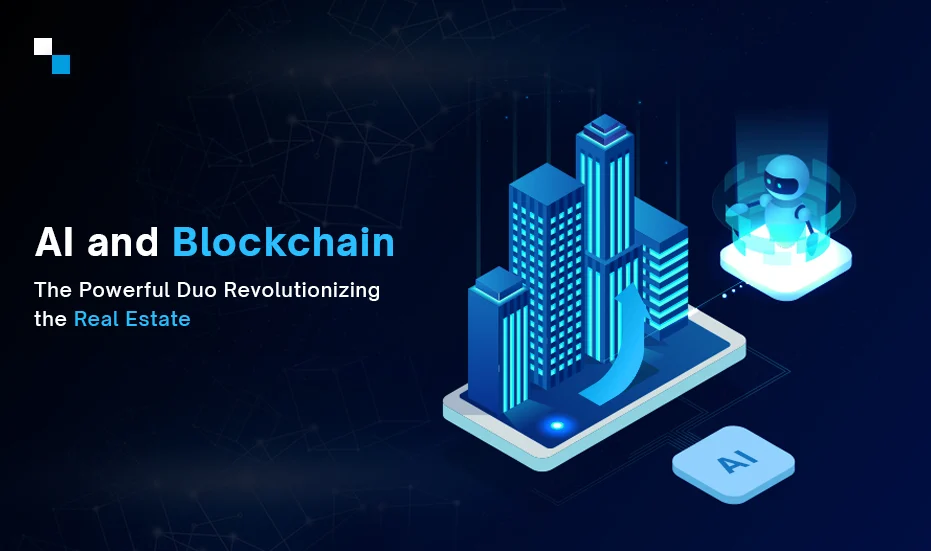In a world increasingly defined by technological advancements, the real estate industry in the United Kingdom is no exception. The convergence of Artificial Intelligence (AI) and Blockchain technology is poised to revolutionise the way real estate transactions are conducted in the UK. This dynamic duo promises to streamline processes, enhance security, and unlock many new opportunities for buyers, sellers, and industry professionals. In this blog, the local estate agents in Norfolk explore the profound impact AI and Blockchain are set to have on UK real estate transactions.
AI: The Game Changer in Property Valuation
The property valuation process is one of the most critical steps in real estate transactions, and it often involves a considerable amount of time and resources. AI-driven algorithms are changing the game by providing more accurate and efficient property valuations. By analysing vast datasets, including historical property prices, local market trends, and even social and economic indicators, AI can offer precise property valuations, reducing the potential for disputes and speeding up the decision-making process.
AI also improves the customer experience by personalising property recommendations based on the buyer’s preferences and past behaviour. This saves time and increases the likelihood of finding the perfect property match.
Blockchain: The Trustworthy Ledger
Blockchain technology is another disruptive force reshaping the UK real estate landscape. This decentralised ledger system offers transparency, security, and efficiency in property transactions. When integrated into the real estate industry, Blockchain can be a game-changer in several ways:
- Title Verification: One of the most time-consuming aspects of a property transaction is verifying the property’s title. Blockchain ensures secure and immutable title records, eliminating the need for costly title insurance and extensive title search processes.
- Smart Contracts: Blockchain’s smart contract capabilities allow for self-executing contracts when predefined conditions are met. This means that property transactions can occur without intermediaries, reducing transaction costs and the potential for human error.
- Fraud Prevention: Blockchain’s immutability makes it nearly impossible for fraudulent activities, such as property forgery or double-selling, to occur. Each transaction is recorded transparently and cannot be tampered with.
AI and Blockchain: A Synergistic Approach
AI and Blockchain are not separate technologies but can work together seamlessly to create a holistic solution for real estate transactions. For example, AI can automate the property search and valuation process, while Blockchain ensures secure and transparent transaction documentation.
This synergy can also facilitate property tokenisation, which allows the division of properties into smaller, tradeable tokens. These tokens can be bought and sold on blockchain-powered platforms, making real estate investment more accessible to a broader range of investors.
Challenges and Concerns
While the integration of AI and Blockchain in the UK real estate sector holds great promise, it’s not without its challenges and concerns:
- Regulation: Regulatory bodies must catch up with technological advancements to ensure that AI and Blockchain implementation meets legal requirements and safeguards consumer interests.
- Data Privacy: As AI relies on vast amounts of data, ensuring data privacy and security is paramount. Unlawful entry into confidential data could lead to serious repercussions.
- Technological Adoption: Many traditional real estate professionals may resist adopting these technologies due to a lack of understanding or fear of job displacement.
- Initial Costs: Implementing AI and Blockchain systems can be costly, which may deter some smaller players in the industry from embracing these innovations.
Conclusion
Integrating AI and Blockchain in UK real estate transactions promises to be transformative. These technologies can streamline property valuations, enhance the security of commerce, and introduce new opportunities for both buyers and sellers. While there are challenges to overcome, it is clear that these technological advancements will reshape the real estate industry in the UK.
The benefits will become increasingly apparent as regulatory frameworks catch up and industry professionals become more familiar with these innovations. The future of real estate transactions in the UK is being reshaped by the powerful combination of AI and Blockchain, and it’s a change that holds significant promise for all stakeholders in the industry.

































































